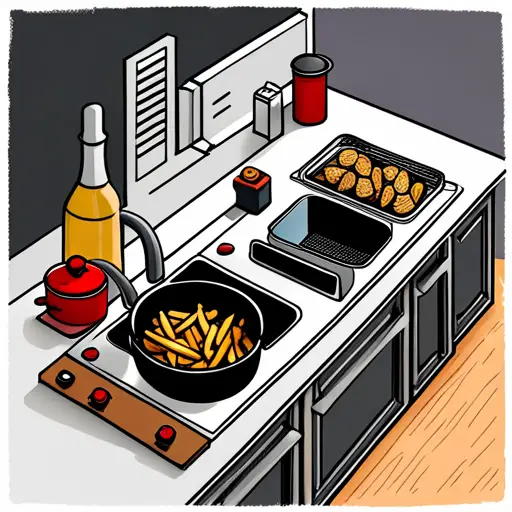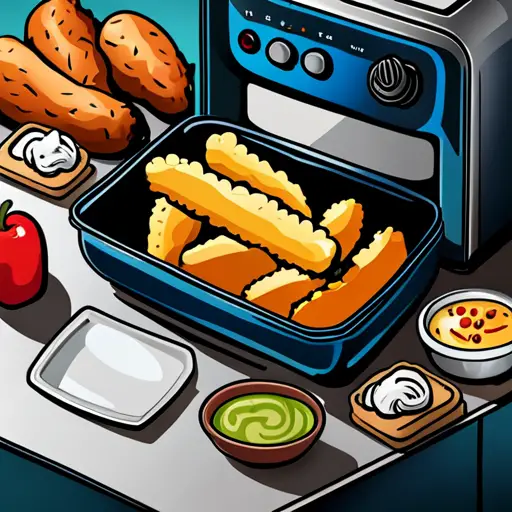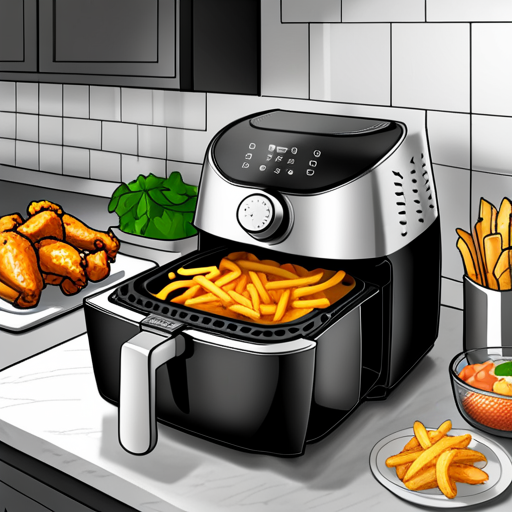
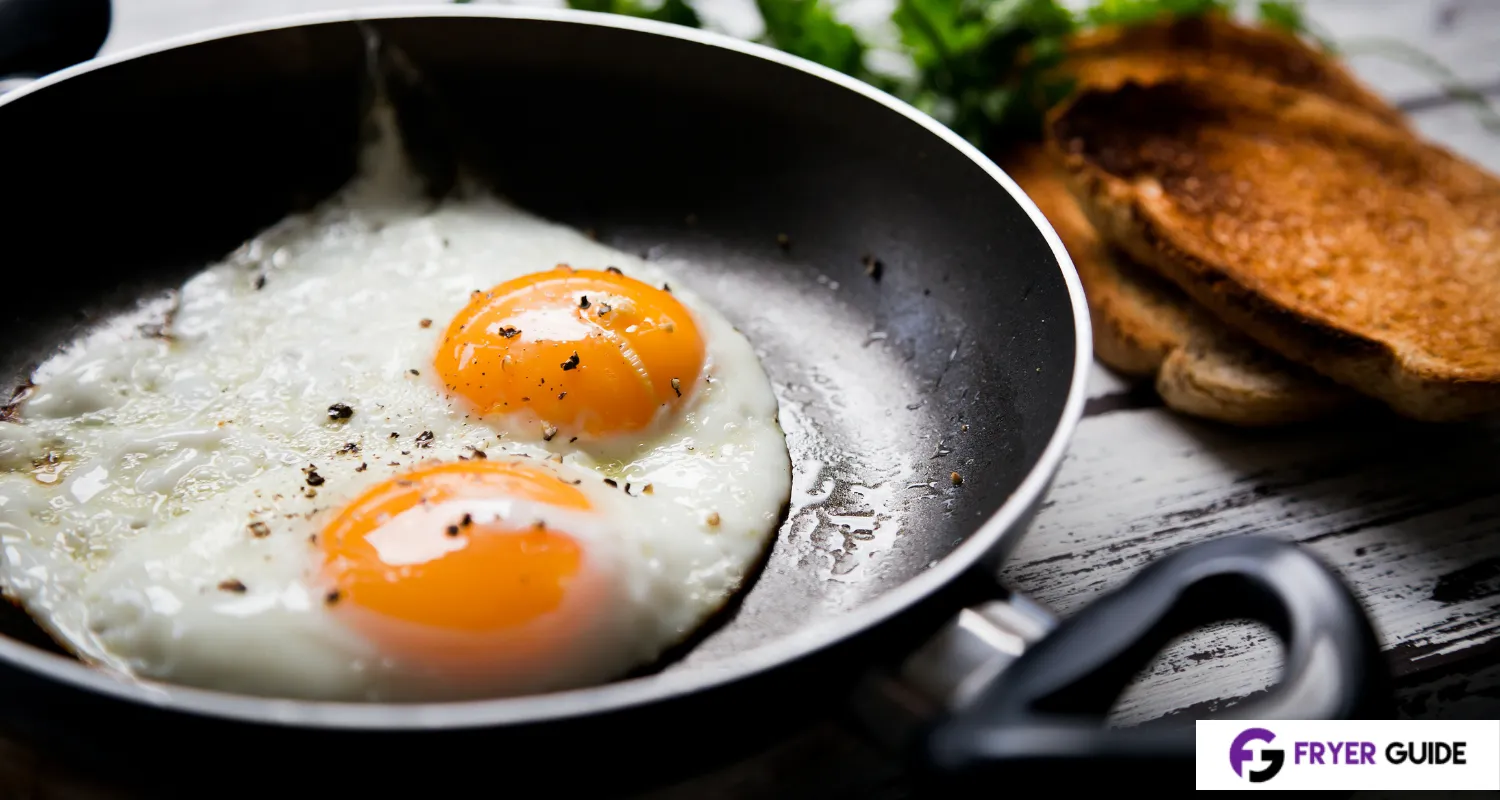
Contents
Eggs are a kitchen staple for many of us, they make a great high protein breakfast or a quick snack and typically store very well, but you might be wondering how fried eggs hold up when it comes to reheating them for your next day meal.
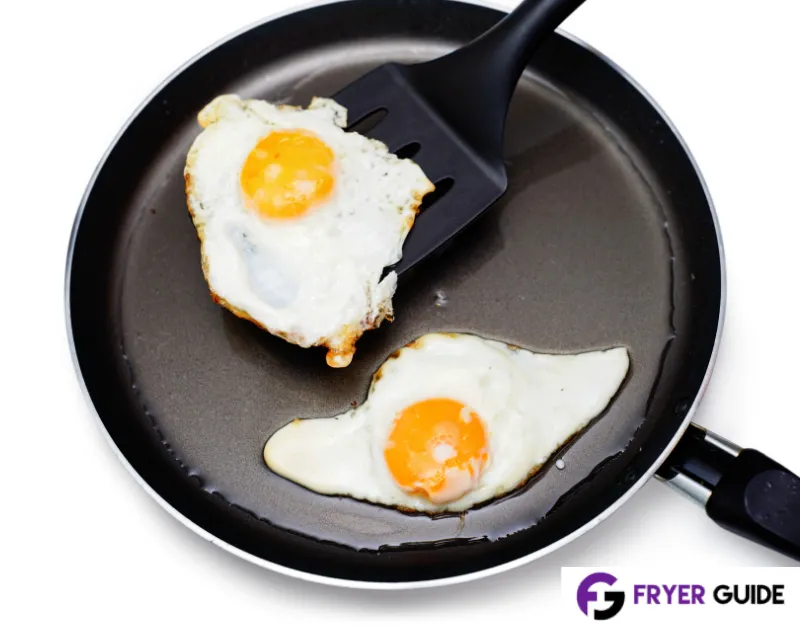
Well, you can reheat fried eggs easily on either the pan, in the oven or the microwave, but, the texture might change to be a little rubbery, so the best way is recommended in the microwave to keep them crisp and stop overcooking them.
To help you with using eggs in the kitchen, reheating and storing your fried eggs, we've composed a small guide below which will take you through if reheating eggs are safe, how to use and reheat them, how to store them and a guide to reheating other types of eggs too.
Let's get into it!
Before we get into how to reheat your fried eggs, let's discuss the effects of doing so and whether or not it is bad for your health after the reheating process.
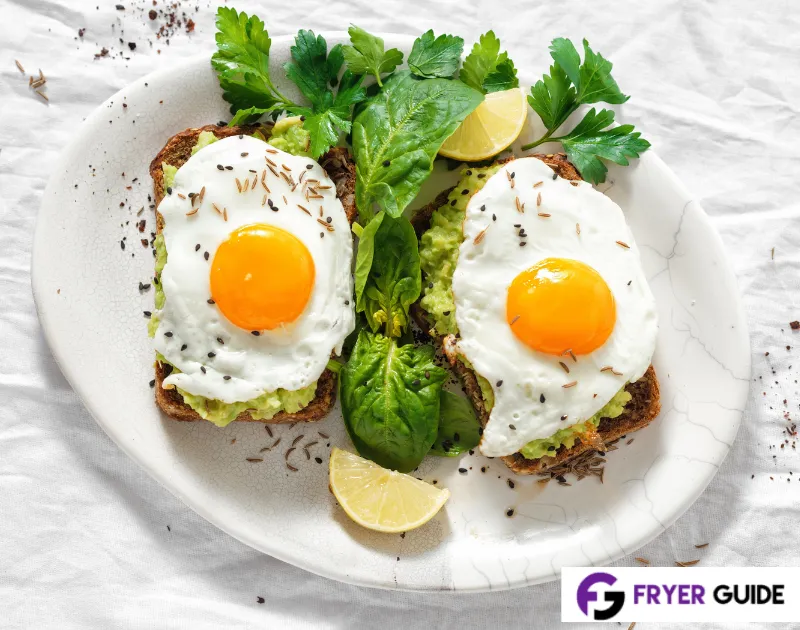
Eating a leftover egg type of dish is safe, they can be eaten either cold or hot, but some people recommend reheating them to a certain temperature of around 160F to remove any bacterial which could have grown on the eggs cold.
You should also be careful if your egg has a runny yolk as it can harbour bacteria due to natural moisture.
The only negative effect of the reheating process on eggs is that it can change the texture of the cooked yolk and whites which can make it rubbery, they are still safe to eat, however.
If you want to make types of egg dishes to eat at a later time you can use them in a variety of different ways in the kitchen, we've listed some different ways you can use eggs for meal prepping below, not just fried.

You can reheat fried eggs in a variety of ways however the process of reheating will produce different results to the original texture.
We've listed three kinds of ways you can reheat your fried eggs below with step by step instructions to make the cooking process easier.
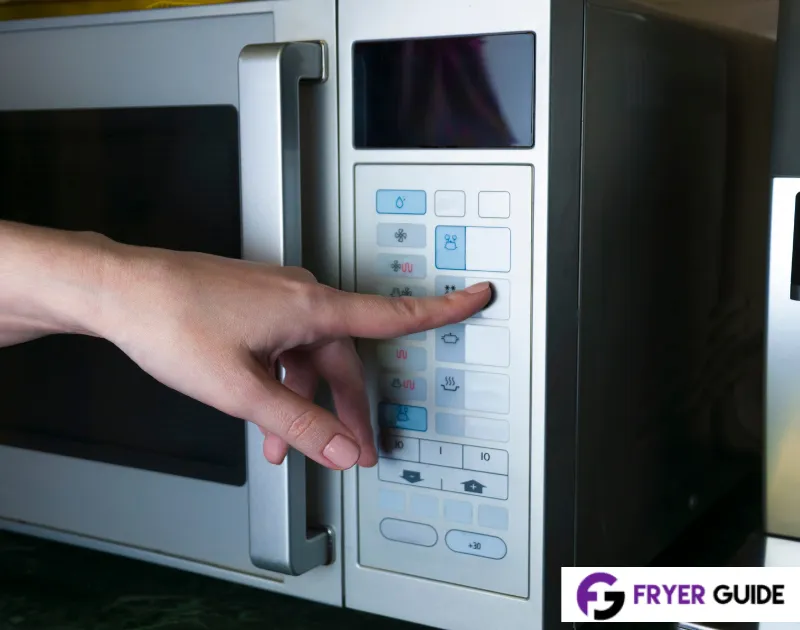
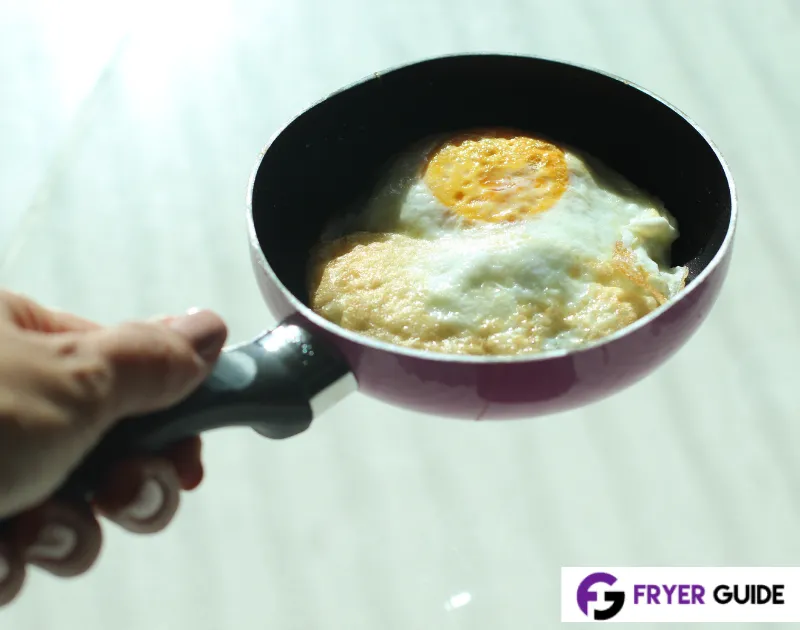
Now we know three ways to reheat our fried eggs it's a good idea to learn how to make your fried eggs in the best way possible to reduce excess moisture and keep a fluffy texture.
We've listed a simple way with step by step instructions to make the best-fried eggs below.
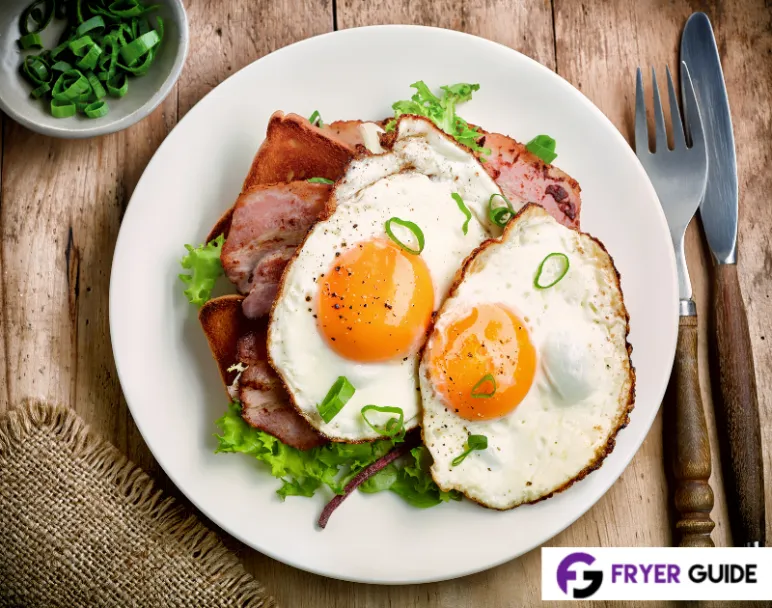
To get the best results from your egg from the fridge/freezer to reheating you need to make sure that you are storing them all properly.
To store your fried eggs well you should make sure they are tightly sealed in plastic wrapping so that you can stop bacteria from growing and retain moisture.
We've listed out how to store fried eggs in either your freezer or fridge below.
You can indeed reheat sunny side up eggs with the correct step by step instructions we listed above, you just have to ensure you are checking them at shorter intervals to avoid overcooking the yolk inside of the eggs.
Reheated eggs can make a delicious side dish for lunch or to throw in a sandwich and can also be reheated in other styles, not just fried eggs.
We've listed the best ways to reheat other kinds of eggs down below.
Boiled eggs are one of the most difficult kinds of eggs to reheat, they can be reheated in either a microwave, oven or boiling water again.
We've listed the three ways down below.
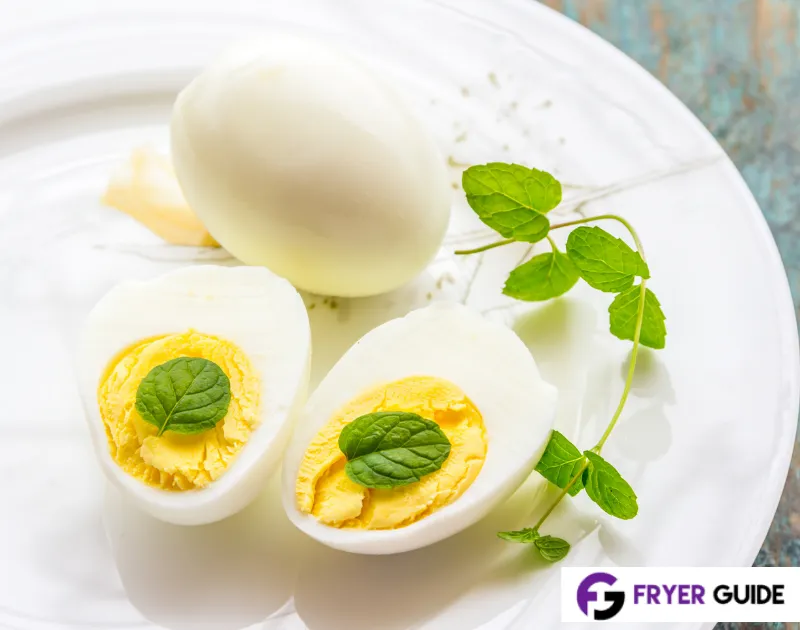
Scrambled eggs are one of the easiest types of eggs to reheat as you do not have to worry about the yolk inside breaking up as they are already scrambled!

Poached eggs need the most care when reheating as they can break easily and spill the contents of the yummy yolk inside.
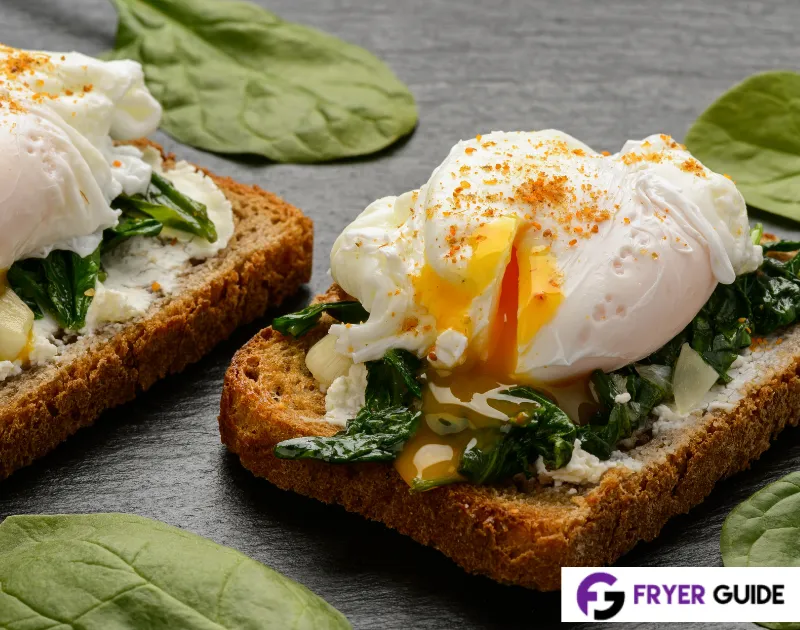
How do I stop my eggs from going rubbery?
The best way to stop your eggs from going rubbery when reheating is by covering them up, this stops them from drying out during the reheating process, to cover could mean putting a damp tissue over the top, covering the pan with aluminium foil or a plastic wrapping your microwave dish.
Should I store boiled eggs in or out of the shell?
You can store hardboiled eggs both in and outside of their shell but out of their shell they will go bad much faster, hardboiled eggs in their shell last for much longer and can be used for up to a week, you can reheat them easily in a pan of hot water too.
Can I eat eggs cold the next day?
Yes, eggs can be eaten cold or hot once cooked, but to avoid any foodborne illnesses or contamination from your fridge you should ensure they have been stored well without touching any other food. If you are concerned we would suggest reheating them to at least 160F.
Are eggs healthy?
Eggs are very healthy and are a great source of protein, they contain vitamins such as B, C, E, K and D plus can lower your cholesterol when eaten in moderation.
Can you reheat hardboil eggs in a pan?
No, hard-boil eggs should only be heated the way they are cooked, in a pan of boiling water, if not they could potentially explode in the microwave or pan.
How should I store my fried eggs?
Fried eggs should be wrapped up individually in some plastic wrap then put into a container or another plastic bag. They can then be stored in either the fridge or the freezer.
How long will eggs keep in the fridge/freezer?
Most types of eggs will keep for about 5 days in the fridge and up to 4 months in the freezer.
Can I meal prep with leftover eggs?
Yes, leftover eggs are great for meal prepping with, you can throw them in rice, salad or sandwiches for some extra protein on the go.
What heat should I reheat eggs with?
Always avoid heating your eggs at a very high temperature to prevent them from going rubbery, instead focus on heating them on medium heat.
Which temperature should my eggs reach?
For food safety standards your eggs should reach a temperature of at least 160F when cooking to make sure they are safe to eat and free of bacteria.
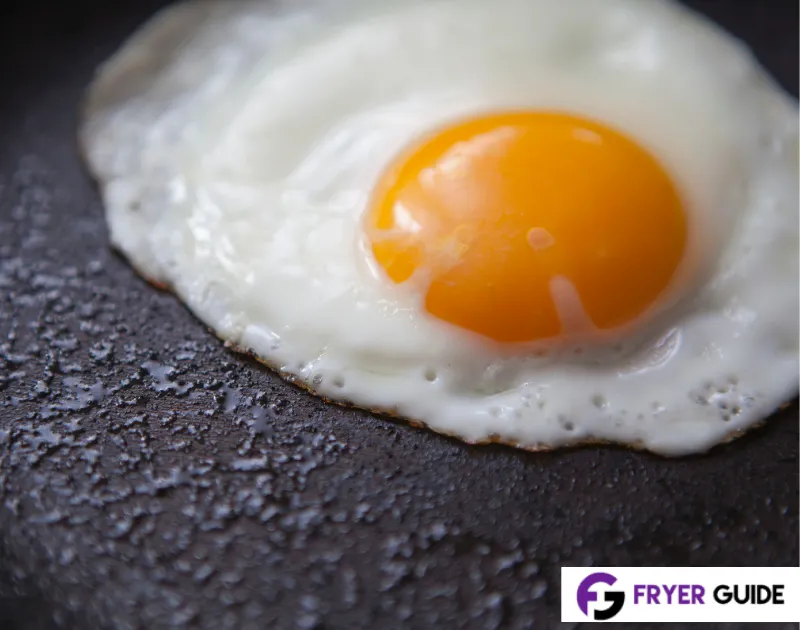
To conclude, You can indeed reheat fried eggs as long as you store them properly by wrapping them individually, we would always recommend reheating them in a microwave for the best results but they can be heated in a pan or the oven too.
Remember to heat at a low temperature to prevent overcooking eggs and don't flip them if you want to keep the yolk soft or runny.

